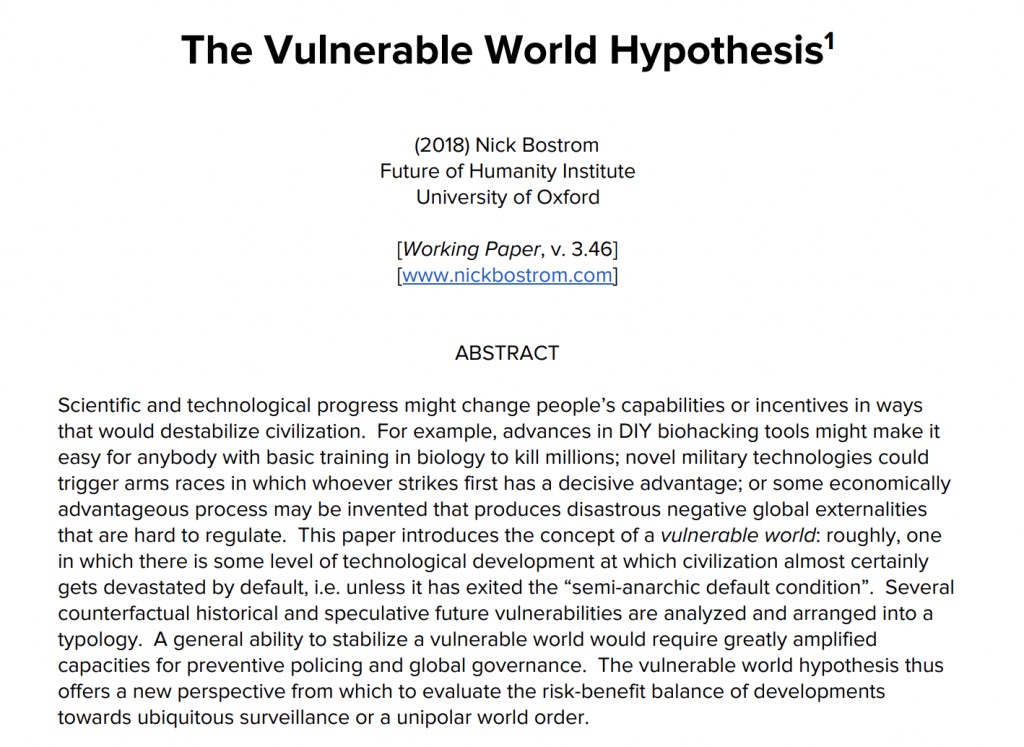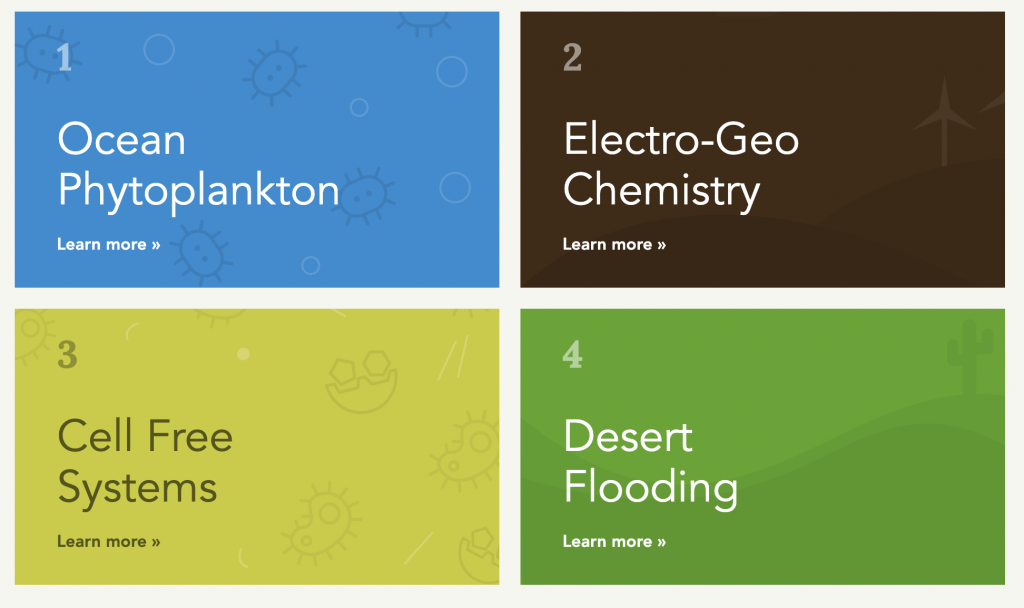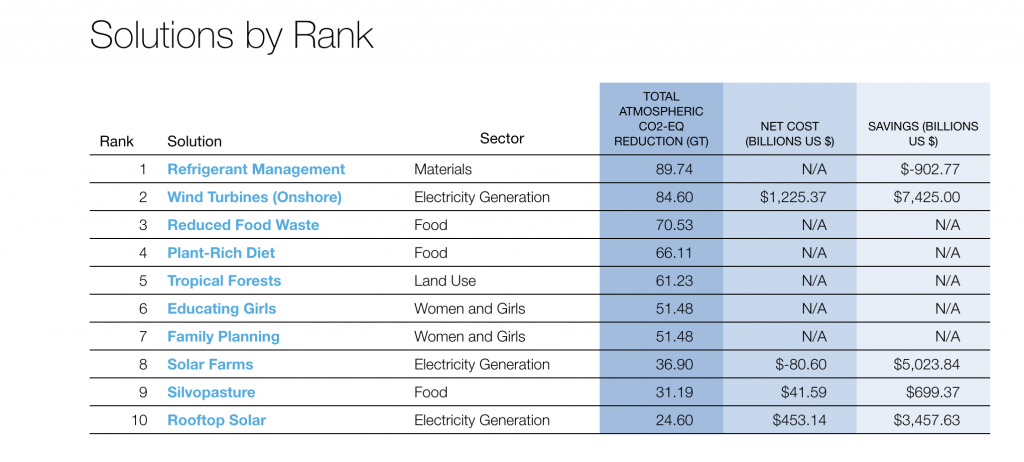Sections
Weapons of Mass Destruction
[avatar user=”malm” size=”small” align=”left” link=”file” /]
Weapons of Mass Destruction don’t always come in the form of conventional weaponry on a large scale. All around us the evidence that technology is enabling ‘innovation’ in ways we don’t seem to be able to forsee in our rush to advance:
There is “concrete evidence” that ISIS is developing self-driving cars to use in place of suicide bombers, Mikko Hypponen, chief research officer of F-Secure, said in a speech at South by Southwest covered by Autoblog. He said the group even plans to put mannequins in cars and replicate a human body’s heat signature, to fool security systems into thinking a person is actually driving. Indeed, video of such a car surfaced back in January.
Even that old idea that somewhere there’s a bullet with your name written on it has re-emerged with a modern twist namely laser recognition of heartbeat. The Verge profile a shadowy US National Reconnaissance Office program called Sentient that is able to extract information from the vast sea of data pouring out of spy satellites. It feels inevitable that over the next few years we will see a dreadful combination of these methods to create a lethal weapon that will change the course of history.
Weapons of Mass Destruction can extend to mental space. The creator of the retweet suggests it turned out to be the equivalent of handing “a loaded weapon to 4 year-olds” driving online polarisation with all its ensuing chaos.

No wonder there’s a strong case for watching less news to dehystericalise.
Capitalism with its insatiable hypergrowth model remains a key driver for a lot of ill thought-through decision-making under pressure in the desperation to inflate:
if a company is growing at 20% per annum–a rate most managers and investors in other sectors would be more than happy with – it still has a 92% chance of being dead within a few years. This is a sobering reminder that growth is all in our line of work: grow slow, and you will die young.
50 years ago we landed on the moon in perhaps the greatest technological achievement of our society. The world then was a simpler place and the engineers who worked on the project faced ambitious but measurable, unambiguous targets. Their incredible achievements will endure, forever frozen in photographic form. For us, however, the challenges are far bigger and more nebulous requiring collaboration on a global scale that seems sadly missing. The ultimate solution to the manifold problems we have created is typically claimed to be Artificial General Intelligence (AGI) whose advocates are also now referring to skeptics as “AGI deniers”:
Which online articles contain the strongest arguments against the possibility of AGI happening by mid century? The arguments I hear tend to be pretty brazen examples of one or more basic forecasting fallacies. But I'd rather construct & address a steelman version of the argument pic.twitter.com/cnI3dlTG0s
— David Wood (@dw2) July 29, 2019
Nick Bostrom’s Vulnerable World Hypothesis makes clear the frightening scale of challenge we fact in this new moonshot for our species.

Climate Emergency
The Quartz Obsession on Climate Eschatology provides a metric of doom:
“Researchers now estimate the likelihood of human extinction by 2100 at 9.5%.”
MIT research provides a proximate cause in carbon threshold breach:
By the end of this century, the planet is likely to reach a critical threshold, based on the rapid rate at which humans are adding carbon dioxide to the atmosphere. When we cross that threshold, we are likely to set in motion a freight train of consequences, potentially culminating in the Earth’s sixth mass extinction.
The sense that we are not going to make it is palpable and driving a lot of latent fear around a planet we are trapped on. Greta Thunberg is just the lightning rod for the deeper truth we all know as we go about our daily business powered by the burning of fossil fuels:
The ancient Greeks had a word for this: parrhesiastes. It means a person who speaks truth to power: you should not be behaving in this way. Don’t. More specifically it suggests someone in whom directness of expression and access to truth coincide
Growing climate catastrophe will drive a major shift in political thinking:
The eradication of carbon emissions needs to become the lode star and the animating spirit of the left. The alliances we need to achieve this are not those of classic socialism.
YCombinator have a request for carbon startups. More technology to undo what technology has wrought:
Project Drawdown is an essential resource which helps explain what really makes an impact in terms of changing the climate around climate. Some of the entries on this list may seem surprising:
Pollution is significantly compounding the situation. The two are related by pollution if anything is an even more urgent problem in terms of threat to life:
Whereas climate change will kill an estimated 250,000 people a year between 2030 and 2050, “pollution is killing millions of people here and now,”

Even if we somehow make it past climate change there are many other long-term threats facing humanity from the death of the sun to the end of our galaxy to the end of the universe. We cannot escape our ultimate fate.
Big Tech
Benedict Evans on Amazon as a massive experiment with one huge Achilles Heel:
Amazon doesn’t do “unscalable.” And yet, while we now know there is nothing that people won’t happily buy online, not everything will fit that commodity model. So maybe that’s the real test of Amazon’s pride: can it work out how to let us shop, rather than just buy?
Forbes on how Amazon became Agile by focussing on Customer Obsession:
Amazon doesn’t start an activity or develop a capability unless and until the team has figured out how it will measure customers’ response. Amazon builds in customer metrics as a “forcing function” from the outset.
A prime example is Amazon Go, arguably Amazon’s most ambitious research project which is essentially an entirely automated customer convenience store still looking for customers:

Jony Ive is leaving Apple:
[Ive] is setting up his own new venture, a creative business called LoveFrom, with Apple as its first client. The transition will begin later this year, with LoveFrom launching fully in 2020.
Benedict Evans again, this time positing that Netflix like Sky before it is a television company using superior technology against its competition as a lever to gain market share. All the questions and challenges that matter to Netflix are television-related in his view.
Platform Engineering
MIT ask what is a platform and why would you build one? The prizes for building a successful platform are colossal but execution remains an almost impossible challenge given the odds:
Building a platform, especially after a decade of buzzworthy attempts and a few huge successes (Amazon, eBay, Uber, Airbnb), is really, really hard. There are countless ways to flub this. A solid platform strategy will answer two key questions: How will you attract customers? And how will you make your technology the core of an ecosystem?
This key message that it is all about the execution and that remains the hardest lesson to learn:
“As agile platform pioneers continue to rapidly grow, many traditional product companies have been too slow to both realize the importance of platforms and develop a clear and compelling platform strategy. But you don’t just need a good strategy – and management backing – you need the means to implement it.”
Software Engineering
Square have released their Engineering Growth Framework following the precedent set by Songkick and Monzo. The commentary around promotion is very Amazonian:
We promote engineers and managers when they have demonstrated that they are consistently performing at the next level. Promotions don’t unlock new responsibilities; the new responsibilities and increased scope come first and then we recognize it with a promotion.
Four rules for a well-designed software system:
- is well-covered by passing tests.
- has no abstractions not directly needed by the program.
- has unambiguous behavior.
- requires the fewest number of concepts.
Following on from the Boeing 737 Max debacle, this excellent Medium post takes the company to task and accuses it of cutting costs by using cheap inexperienced outsource parties to handle tests:
“letting junior engineers code without senior engineers to review their work and guide them is equivalent to stashing time bombs all over the codebase.”

We should be lauding maintainers and not innovators. This Aeon post explains how adopting this approach more widely would benefit society.
The Twitter fail whale and CTRL-C:
I was browsing Hacker News while Twitter was down, and saw this gem of a story from @Pinboard about the early days of Twitter. pic.twitter.com/QAt66cjJ2F
— Leo Polovets (@lpolovets) July 11, 2019
What programming language should you use in your unicorn startup? Java, Python and JavaScript basically.
Useful introduction to microfrontends, the latest architectural pattern for microservices that involve extending the full stack approach along the micro dimension:

Data Engineering
Superb post from Chris Riccomini on the future of data engineering. Four key trends are examined:
- Timeliness: From batch to realtime
- Connectivity: From one:one bespoke integrations to many:many
- Centralization: From centrally managed to self-serve tooling
- Automation: From manually managed to automated tooling
A basic refresher on statistics for data scientists covering distributions (binomial, poisson), methods (ROC analysis) and theorems (Bayes, kNN).
Culture and Society
How men “damage women’s careers” by not taking on an equal share of domestic tasks:
If fathers did the same kind of work at home that mothers have always done, women’s careers could flourish in ways we haven’t yet imagined. But to get there, we need to stop framing mothers’ workplace woes as an issue of “balance,” and start talking about how men’s domestic negligence makes it so hard for us to succeed.
It’s not a description that applies to Prince Harry who is turning out to be an exemplary role model.
Fascinating inside view on the making of the interactive Black Mirror episode, Bandersnatch.

Ted Chiang, author of Exhalation, is interviewed by GQ on a range of topics covering technology, capitalism and extinction.
Norway is turning into an EV paradise with “over one-third of all EVs sold in Europe end up going to customers in Norway“.
Music
Engadget on how Massive Attack’s classic Mezzanine has been remixed by a neural network with the net result resembling a strange alien white noise. The tech used to create it is available at the Mimic Project.
The Killers headlined Glastonbury in style with anthemic pomp and a unique homage to the British music that influenced them.
Meanwhile it’s 50 years since the formation of Black Sabbath. Time to remind ourselves of their awesome legacy with this legendary 1970 performance of War Pigs. God knows what the Parisian audience made of this dynamic exhibition of raw power:
Jay-Z’s Tidal music service sounds increasingly like a latter-day capitalist scam and it feels entirely in keeping with the assertion that “Hip-hop is about hustling and faking it ’til you make it”.
Politics
Boris Johnson’s inevitable ascension capped an extraordinary week for Chris Grey and a full lurch into quackery:
Apparently the nation, like some weird faith-healing cult, is to follow a strategy based upon blind optimism and a can-do spirit.
How could such a buffoonish character become Prime Minister? This thoughtful poster reflects on how his path was eased by people like her voting him in as London Mayor.
Fintan O’Toole’s devastating analysis of Johnson also provides some clues. He’s always been playing a different game. One of the Gentleman vs the Players in cricketing terms. Like his natural forebears the amateur nomadic i Zingari club, the greatest sin being taking anything too seriously which seems to have been his basic approach to everything he has done in politics:
The Greek philosophers found akrasia mysterious—why would people knowingly do the wrong thing? But Johnson knows the answer: they do so, in England at least, because knowingness is essential to being included. You have to be “in on the joke”—and Johnson has shown just how far some English people will go in order not to look like they are not getting it. The anthropologist Kate Fox, in her classic study Watching the English, suggested that a crucial rule of the national discourse is what she called The Importance of Not Being Earnest: “At the most basic level, an underlying rule in all English conversation is the proscription of ‘earnestness.’” Johnson has played on this to perfection—he knows that millions of his compatriots would rather go along with his outrageous fabrications than be accused of the ultimate sin of taking things too seriously.
The glorious MrMichaelSpicer certainly doesn’t take Boris “Kipper” Johnson seriously:
the room next door – Boris Johnson and the Kipper pic.twitter.com/ZSLjFxNjFi
— Michael Spicer (@MrMichaelSpicer) July 19, 2019
However, the situation could not be more serious. Johnson was the main benefactor from a disastrous referendum that should never have been run according to Jared Diamond as the topic was too complicated for such a casual approach:
For important issues that involve change, it should be a decisive vote. You should not decide something with a 51.9% vote. In California, referendum with heavy fiscal consequences require 60 to 66% of voters. Why did Britain, the leading democracy, not look to other countries for models on how to hold a referendum?
Now rudderless, Britain is drifting and predators from all sides are starting to circle. Xenophobia is being normalised and the likes of Jacob Rees-Mogg are running rings around us all.
The gloom is not lifted looking beyond Britain’s borders. What is going on in Hong Kong is Orwellian and almost entirely uncommented on by UK sources obsessed with Brexit:
Hong Kongers, are you going to remain silent? #HongKong pic.twitter.com/pvgCwfsVEm
— CCTV (@CCTV) August 17, 2019


